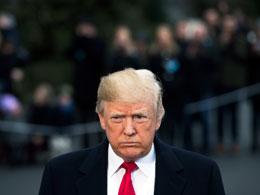World’s biggest trading Bloc to tackle Trump

A new trading bloc comprising 16 nations, which includes China, Japan and India are working out a plan to constitute a trading block that promotes free trade.
The trade ministers of the different Asian nations met last Sunday in Tokyo to take another step toward creating the world’s largest trading bloc and they hope to seal the deal by year end, Bloomberg reported.
“The path towards a year-end agreement is now clearer,” Bloomberg reported citing Hiroshige Seko, Japan’s trade minister. “As protectionism concerns increase globally, it’s important that the Asian region flies the flag of free trade.”
Bloomberg report also said that the new trade bloc will also include 10 members of the Association of Southeast Asian Nations as well as South Korea, Australia and New Zealand. It is expected to cover one third of the world’s economy and nearly half its population.
Even though it’s a big move, there are a few obstacles on the way including India’s requirement that any agreement to reduce tariffs on goods and services should allow for free movement of people. “There are great challenges to the global trading system at this point in time,” Bloomberg reported citing Chan Chun Sing, Singapore’s trade minister. “It serves as added impetus for us to try and achieve a substantive conclusion to the RCEP process.”
China, India and the EU have recently come under pressure from Trump on trade. The US is due to impose tariffs on $34 billion of Chinese imports from July 6, and Trump has threatened to impose levies on another $200 billion of Chinese goods. If that threat is realised, it could cut as much as half a percentage point off China’s economic growth, and also hit the American economy, economists have said.
During weekend meetings, Prime Minister Shinzo Abe urged fellow leaders to work for an early conclusion of the Regional Comprehensive Economic Partnership in the face of an increasingly protectionist U.S.
Japan has sought to take leadership in shaping the pact as an alternative to a Pacific Rim free-trade grouping that Trump abandoned early this year, the Trans-Pacific Partnership.
Seko and his Singaporean counterpart, Chan Chun Sing, noted there are differences that still need to be resolved, but the participants see reaching an accord as evidence of Asia's commitment to defending free trade.
"This is indeed a moment for us to seize the opportunity against a global backdrop where we are facing headwinds in the trade relationships and the trade regimes," Chan said. Achieving a pact would be a powerful statement to show what RCEP countries stand for, he said.
In a joint statement, the ministers said achieving a pact is important especially "in view of the current global trade environment, which faces serious risks from unilateral trade actions and reactions, as well as their debilitating implications on the multilateral trading system." They also pledged to seek breakthroughs in politically challenging areas.
In his remarks earlier Sunday, Abe said a pact among the countries that together make up half the global population has enormous growth potential.
"As we are faced with concerns of the rise of protectionism in the world, all of us in Asia must unite, and our future depends on whether we can keep hoisting our flagship principle of free and fair trade," Abe told the meeting in Tokyo. "Let us be as one and achieve a free, fair and rules-based market in this region."
Trump, who says he prefers bilateral deals, has pulled the U.S. out of the TPP, leaving the remaining 11 countries, from Chile to New Zealand, to work on a revamped version of that pact. Japan is a leading participant in those talks, too.
Trump has imposed high tariffs on steel and aluminum imports and has threatened to add automobiles to reduce America's trade deficit. He has singled out Chinese products, prompting fears of a trade war.
Trump's moves have resonated in Asia, where many countries have prospered thanks to free trade and the expansion of global supply chains.









